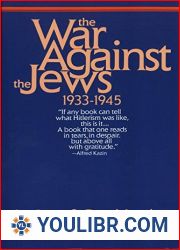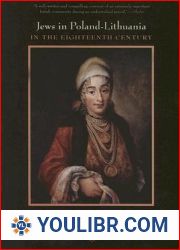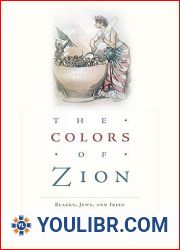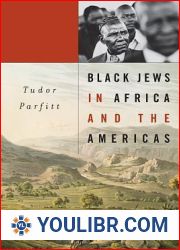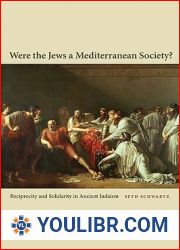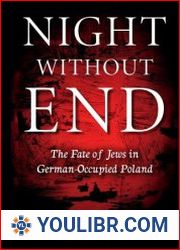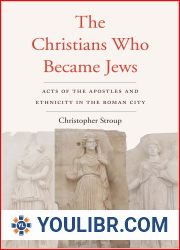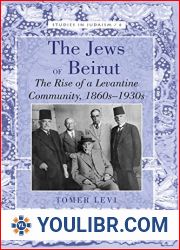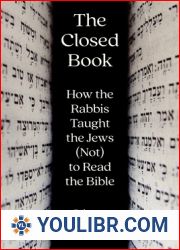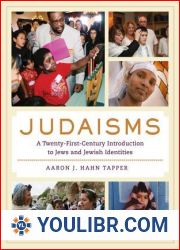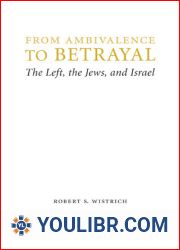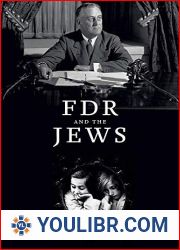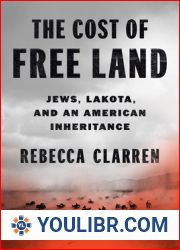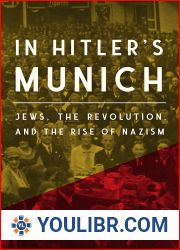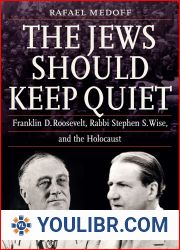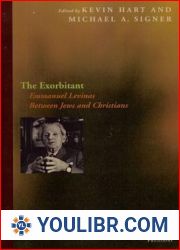
BOOKS - Jews and Palestinians in the Late Ottoman Era, 1908-1914: Claiming the Homela...

Jews and Palestinians in the Late Ottoman Era, 1908-1914: Claiming the Homeland
Author: Louis A Fishman
Year: January 1, 2020
Format: PDF
File size: PDF 5.4 MB
Language: English

Year: January 1, 2020
Format: PDF
File size: PDF 5.4 MB
Language: English

The Plot of "Jews and Palestinians in the Late Ottoman Era, 1908-1914: Claiming the Homeland" In this groundbreaking book, author Louis A Fishman delves into the early years of the Palestinian-Israeli conflict, shedding light on the often-buried history of the late Ottoman era and its profound impact on the ongoing struggle between these two communities. The text challenges traditional narratives and offers a fresh perspective on the origins of the conflict, revealing how the very freedoms intended to unify the region only served to further divide the Jewish and Palestinian populations. Set against the backdrop of the Young Turk Constitutional Revolution, the book explores the tumultuous period between 1908 and 1914, when the Ottoman Empire underwent significant political and social changes that would shape the future of the Middle East. This pivotal moment in history saw the emergence of new freedoms and opportunities for both Jews and Palestinians, but also fueled existing tensions and deepened divisions. Through meticulous research and analysis, the author exposes the complex web of factors that contributed to the escalation of violence and conflict during this time, including the rise of nationalist ideologies, religious tensions, and competing claims to the same homeland.
Сюжет «Евреи и палестинцы в позднеосманскую эпоху, 1908-1914 годы: претендующие на родину» В этой новаторской книге автор Луи А Фишман углубляется в ранние годы палестино-израильского конфликта, проливая свет на часто погребаемую историю позднеосманской эпохи и ее глубокое влияние на продолжающуюся борьбу между этими двумя общинами. Текст бросает вызов традиционным нарративам и предлагает новый взгляд на истоки конфликта, показывая, как сами свободы, предназначенные для объединения региона, только способствовали дальнейшему разделению еврейского и палестинского населения. На фоне младотурецкой конституционной революции книга исследует бурный период между 1908 и 1914 годами, когда в Османской империи произошли значительные политические и социальные изменения, которые сформировали бы будущее Ближнего Востока. Этот ключевой момент в истории ознаменовался появлением новых свобод и возможностей как для евреев, так и для палестинцев, но также способствовал росту существующей напряженности и углублению разногласий. Посредством тщательных исследований и анализа автор разоблачает сложную сеть факторов, которые способствовали эскалации насилия и конфликтов в течение этого времени, включая рост националистических идеологий, религиозную напряженность и конкурирующие претензии на одну и ту же родину.
Intrigue « s Juifs et les Palestiniens à l'époque tardive ottomane, 1908-1914 : les prétendants à la patrie » Dans ce livre novateur, l'auteur Louis A Fishman approfondit les premières années du conflit israélo-palestinien, éclairant l'histoire souvent enterrée de l'ère tardive ottomane et son influence profonde sur la lutte continue entre ces deux communautés. texte récuse les récits traditionnels et propose une nouvelle vision des origines du conflit, montrant comment les libertés elles-mêmes, destinées à unifier la région, n'ont contribué qu'à diviser davantage la population juive et palestinienne. Dans le contexte de la révolution constitutionnelle des jeunes Turcs, le livre explore la période agitée entre 1908 et 1914, lorsque l'Empire ottoman a connu d'importants changements politiques et sociaux qui façonneraient l'avenir du Moyen-Orient. Ce moment clé de l'histoire a été marqué par l'émergence de nouvelles libertés et de nouvelles possibilités pour les Juifs et les Palestiniens, mais a également contribué à exacerber les tensions existantes et à exacerber les divisions. Au moyen de recherches et d'analyses minutieuses, l'auteur expose un réseau complexe de facteurs qui ont contribué à l'escalade de la violence et des conflits au cours de cette période, y compris la montée des idéologies nationalistes, les tensions religieuses et les revendications concurrentes sur la même patrie.
Trama «Judíos y palestinos en la época otomana tardía, 1908-1914: reivindicando la patria» En este libro pionero, el autor Louis A Fishman profundiza en los primeros del conflicto palestino-israelí, arrojando luz sobre la historia a menudo enterrada de la época otomana tardía y su profunda influencia en la lucha en curso entre estas dos comunidades. texto desafía las narrativas tradicionales y ofrece una nueva visión de los orígenes del conflicto, mostrando cómo las propias libertades, destinadas a unir la región, sólo han contribuido a una mayor división entre la población judía y la palestina. En medio de la revolución constitucional de los jóvenes turcos, el libro explora el turbulento período comprendido entre 1908 y 1914, cuando se produjeron importantes cambios políticos y sociales en el Imperio otomano que darían forma al futuro de Oriente Medio. Este momento clave en la historia estuvo marcado por la aparición de nuevas libertades y oportunidades tanto para judíos como para palestinos, pero también contribuyó a aumentar las tensiones existentes y profundizar las divisiones. A través de rigurosos estudios y análisis, el autor expone una compleja red de factores que han contribuido a la escalada de violencia y conflictos durante este tiempo, incluyendo el crecimiento de ideologías nacionalistas, tensiones religiosas y reivindicaciones rivales sobre la misma patria.
A história de «Judeus e Palestinos na era otomana tardia, 1908-1914: Aspirantes à terra natal». Neste livro inovador, o autor Louis A Fishman aprofunda-se nos primeiros anos do conflito palestino-israelense, lançando luz sobre a história frequentemente enterrada da era otomana tardia e sua profunda influência na luta em curso entre as duas comunidades. O texto desafia as narrativas tradicionais e oferece uma nova visão das origens do conflito, mostrando como as próprias liberdades destinadas a unir a região só contribuíram para dividir ainda mais as populações judaica e palestina. Em meio à revolução constitucional menor, o livro explora o período turbulento entre 1908 e 1914, quando houve uma mudança política e social significativa no Império Otomano que moldaria o futuro do Oriente Médio. Este momento crucial da história foi marcado pelo surgimento de novas liberdades e oportunidades tanto para os judeus como para os palestinos, mas também contribuiu para o aumento das tensões e para o aprofundamento das diferenças. Através de rigorosas pesquisas e análises, o autor expõe uma complexa rede de fatores que contribuíram para a escalada da violência e dos conflitos durante esse tempo, incluindo o crescimento de ideologias nacionalistas, tensões religiosas e reivindicações concorrentes sobre a mesma terra natal.
Storia «Ebrei e Palestinesi in epoca ottomana recente, 1908-1914: candidati» In questo libro innovativo, l'autore Louis A Fishman approfondisce i primi anni del conflitto palestinese-israeliano, mettendo in luce la storia spesso sepolta dell'era ottomana e la sua profonda influenza sulla lotta in corso tra le due comunità. Il testo sfida le narrazioni tradizionali e offre una nuova visione delle origini del conflitto, mostrando come le libertà stesse destinate ad unire la regione abbiano solo contribuito a dividere ulteriormente la popolazione ebraica e quella palestinese. Sullo sfondo della rivoluzione costituzionale minore, il libro esplora il periodo turbolento tra il 1908 e il 1914, quando l'impero ottomano ebbe un significativo cambiamento politico e sociale che avrebbe formato il futuro del Medio Oriente. Questo momento chiave della storia ha segnato l'emergere di nuove libertà e opportunità sia per gli ebrei che per i palestinesi, ma ha anche contribuito ad aumentare le tensioni esistenti e ad aumentare le divergenze. Attraverso approfondite ricerche e analisi, l'autore rivela una serie complessa di fattori che hanno contribuito all'escalation della violenza e dei conflitti nel corso del tempo, tra cui l'aumento delle ideologie nazionaliste, le tensioni religiose e le rivendicazioni concorrenti sulla stessa patria.
Die Handlung „Juden und Palästinenser in der spätosmanischen Zeit, 1908-1914: Anspruch auf Heimat“ In diesem bahnbrechenden Buch taucht der Autor Louis A. Fishman in die frühen Jahre des palästinensisch-israelischen Konflikts ein und beleuchtet die oft verschüttete Geschichte der spätosmanischen Zeit und ihre tiefgreifenden Auswirkungen auf den anhaltenden Kampf zwischen diesen beiden Gemeinschaften. Der Text fordert traditionelle Narrative heraus und bietet eine neue Perspektive auf die Ursprünge des Konflikts, indem er zeigt, wie die Freiheiten selbst, die die Region vereinen sollen, nur zur weiteren Trennung der jüdischen und palästinensischen Bevölkerung beigetragen haben. Vor dem Hintergrund der jungtürkischen Verfassungsrevolution untersucht das Buch die turbulente Zeit zwischen 1908 und 1914, als im Osmanischen Reich bedeutende politische und soziale Veränderungen stattfanden, die die Zukunft des Nahen Ostens prägen würden. Dieser entscheidende Moment in der Geschichte war geprägt von der Entstehung neuer Freiheiten und Möglichkeiten für Juden und Palästinenser, trug aber auch dazu bei, bestehende Spannungen zu erhöhen und Spaltungen zu vertiefen. Durch sorgfältige Forschung und Analyse entlarvt der Autor das komplexe Netzwerk von Faktoren, die zur Eskalation von Gewalt und Konflikten in dieser Zeit beigetragen haben, einschließlich der Zunahme nationalistischer Ideologien, religiöser Spannungen und konkurrierender Ansprüche auf dieselbe Heimat.
Temat „Żydzi i Palestyńczycy w późnej epoce osmańskiej, 1908-1914: Ojczyzna Powodowie” W tej przełomowej książce autor Louis A Fishman zagłębia się we wczesne lata konfliktu palestyńsko-izraelskiego, rzucając światło na oft pochowana historia późnej epoki osmańskiej i jej głęboki wpływ na trwającą walkę między tymi dwoma społecznościami. Tekst kwestionuje tradycyjne narracje i oferuje nową perspektywę na pochodzenie konfliktu, pokazując, w jaki sposób same wolności miały na celu zjednoczenie regionu służyły jedynie dalszemu podziałowi ludności żydowskiej i palestyńskiej. Na tle rewolucji konstytucyjnej Młodego Turka książka bada burzliwy okres w latach 1908-1914, kiedy Imperium Osmańskie przechodziło znaczące zmiany polityczne i społeczne, które kształtowałyby przyszłość Bliskiego Wschodu. Ten kluczowy moment w historii był naznaczony pojawieniem się nowych wolności i możliwości zarówno dla Żydów, jak i Palestyńczyków, ale również przyczynił się do wzrostu istniejących napięć i pogłębiających się sporów. Poprzez dokładne badania i analizy autor ujawnia złożoną sieć czynników, które przyczyniły się do eskalacji przemocy i konfliktów w tym czasie, w tym wzrost ideologii nacjonalistycznych, napięć religijnych, i konkurencyjnych roszczeń do tej samej ojczyzny.
נושא ”היהודים והפלסטינים בשלהי התקופה העות 'מאנית, 1908-1914: תביעות מולדת” בספר פורץ דרך זה, הסופר לואי א-פישמן מתעמק בשנים הראשונות של הסכסוך הפלסטיני-ישראלי, שופך אור על ההיסטוריה הקבורה של התקופה העות'מאנית המאוחרת והשפעתה העמוקה על המאבק המתמשך בין שתי הקהילות האלה. הטקסט מאתגר את הנרטיבים המסורתיים ומציע פרספקטיבה חדשה על מקורות הסכסוך, המראה כיצד עצם החירויות שנועדו לאחד את האזור רק שימשו לחלוקת האוכלוסיות היהודיות והפלסטיניות. על רקע המהפכה החוקתית של הטורקים הצעירים, הספר חוקר את התקופה הסוערת בין 1908 ל-1914, כאשר האימפריה העות 'מאנית עברה שינויים פוליטיים וחברתיים משמעותיים שעיצבו את עתיד המזרח התיכון. רגע מפתח זה של ההיסטוריה עמד בסימן של חירויות חדשות והזדמנויות הן ליהודים והן לפלסטינים, אך גם תרם לצמיחת המתחים הקיימים ולהעמקת המחלוקות. באמצעות מחקר וניתוח קפדני חושף המחבר רשת מורכבת של גורמים שתרמו להחרפת האלימות והסכסוך בתקופה זו, לרבות עליית האידיאולוגיות הלאומניות, מתחים דתיים ותביעות מתחרות לאותה מולדת.''
Konu "Geç Osmanlı Döneminde Yahudiler ve Filistinliler, 1908-1914: Vatan Davacıları" Bu çığır açan kitapta, yazar Louis A. Fishman Filistin-İsrail çatışmasının ilk yıllarını inceleyerek, Geç Osmanlı döneminin gömülü tarihine ve bu iki toplum arasında devam eden mücadele üzerindeki derin etkisine ışık tutuyor. Metin, geleneksel anlatılara meydan okuyor ve çatışmanın kökenleri hakkında yeni bir bakış açısı sunuyor; bölgeyi birleştirmek için özgürlüklerin sadece Yahudi ve Filistin nüfusunu daha da bölmeye nasıl hizmet ettiğini gösteriyor. Jön Türk anayasa devriminin arka planında, kitap, Osmanlı İmparatorluğu'nun Ortadoğu'nun geleceğini şekillendirecek önemli siyasi ve sosyal değişimler geçirdiği 1908-1914 yılları arasındaki çalkantılı dönemi araştırıyor. Tarihin bu önemli anı, hem Yahudiler hem de Filistinliler için yeni özgürlüklerin ve fırsatların ortaya çıkmasıyla damgasını vurdu, ancak aynı zamanda mevcut gerginliklerin büyümesine ve anlaşmazlıkların derinleşmesine de katkıda bulundu. Dikkatli bir araştırma ve analiz yoluyla, yazar, milliyetçi ideolojilerin yükselişi, dini gerilimler ve aynı anavatana yönelik rekabet iddiaları da dahil olmak üzere, bu süre zarfında şiddetin ve çatışmanın artmasına katkıda bulunan karmaşık bir faktörler ağını ortaya koyuyor.
موضوع «اليهود والفلسطينيون في أواخر العصر العثماني، 1908-1914: المطالبون بالوطن» في هذا الكتاب الرائد، يتعمق المؤلف لويس أ فيشمان في السنوات الأولى من الصراع الفلسطيني الإسرائيلي، ويلقي الضوء على التاريخ المدفون كثيرًا للعصر العثماني المتأخر وعميقه على الصراع الجاري بين هاتين الطائفتين. يتحدى النص الروايات التقليدية ويقدم منظورًا جديدًا لأصول الصراع، ويظهر كيف أن الحريات ذاتها التي تهدف إلى توحيد المنطقة لم تؤد إلا إلى زيادة تقسيم السكان اليهود والفلسطينيين. على خلفية الثورة الدستورية التركية الشابة، يستكشف الكتاب الفترة المضطربة بين عامي 1908 و 1914، عندما خضعت الإمبراطورية العثمانية لتغييرات سياسية واجتماعية كبيرة من شأنها تشكيل مستقبل الشرق الأوسط. تميزت هذه اللحظة الحاسمة في التاريخ بظهور حريات وفرص جديدة لكل من اليهود والفلسطينيين، ولكنها ساهمت أيضًا في تنامي التوترات الحالية وتعميق الخلافات. من خلال البحث والتحليل الدقيق، يكشف المؤلف شبكة معقدة من العوامل التي ساهمت في تصعيد العنف والصراع خلال هذا الوقت، بما في ذلك صعود الأيديولوجيات القومية والتوترات الدينية والمطالبات المتنافسة لنفس الوطن.
주제 "후기 오스만 시대의 유대인과 팔레스타인 인, 1908-1914: 국토 주장자" 이 획기적인 책에서 루이 A 피쉬 먼 (Louis A Fishman) 은 팔레스타인-이스라엘 분쟁의 초기 몇 년을 탐구하면서 후기 오스만 시대와이 두 공동체 사이의 지속적인 투쟁. 이 텍스트는 전통적인 이야기에 도전하고 갈등의 기원에 대한 새로운 관점을 제공하며, 이 지역을 통일하려는 자유가 어떻게 유대인과 팔레스타인 인구를 더 분열시키는 데 도움이되었는지 보 Young Turk 헌법 혁명을 배경으로, 이 책은 오스만 제국이 중동의 미래를 형성 할 중대한 정치적, 사회적 변화를 겪었던 1908 년에서 1914 년 사이의 격동시기를 탐구합니다. 역사상이 중요한 순간은 유대인과 팔레스타인 인 모두에게 새로운 자유와 기회의 출현으로 두드러졌지만 기존의 긴장이 고조되고 불일치가 심화되는 데 기여했습니다. 신중한 연구와 분석을 통해 저자는 민족주의 이데올로기의 부상, 종교적 긴장, 같은 고향에 대한 경쟁 주장을 포함하여이시기에 폭력과 갈등의 확대에 기여한 복잡한 요인들을 노출시킵니다.
主題「オスマン時代後期のユダヤ人とパレスチナ人、1908-1914:国土原告」この画期的な本では、著者ルイ・A・フィッシュマンは、パレスチナとイスラエルの紛争の初期を掘り下げ、オスマン時代後期の埋葬された歴史とその歴史に光を当てますこれら2つのコミュニティ間の継続的な闘争に大きな影響を与えます。このテキストは伝統的な物語に挑戦し、紛争の起源に関する新たな視点を提供し、この地域を統一する自由がユダヤ人とパレスチナ人の人口をさらに分けるのに役立ったことを示している。青トルコの憲法革命を背景に、オスマン帝国が中東の未来を形作る重要な政治的、社会的変化を遂げた1908から1914までの激動期を探る。この歴史の重要な瞬間は、ユダヤ人とパレスチナ人の両方のための新しい自由と機会の出現によって特徴付けられましたが、また、既存の緊張の成長に貢献し、意見の相違を深めました。慎重な調査と分析を通じて、著者は、ナショナリストのイデオロギーの上昇、宗教的緊張、同じ故郷への競合主張など、この時期の暴力と紛争の激化に貢献した要因の複雑なウェブを公開します。
「奧斯曼帝國晚期的猶太人和巴勒斯坦人,1908至1914:自稱祖國」的情節在這本開創性的書中,作者路易斯·菲什曼(Louis A Fishman)深入探討了巴以沖突的早期,揭示了奧斯曼帝國晚期經常埋葬的歷史及其對這兩個社區之間持續鬥爭的深遠影響。該文本挑戰了傳統的敘述,並重新審視了沖突的起源,揭示了旨在統一該地區的自由本身如何只會進一步促進猶太人和巴勒斯坦人的分裂。在輕的土耳其憲法革命的背景下,該書探討了1908至1914之間的動蕩時期,當時奧斯曼帝國發生了重大的政治和社會變化,這將塑造中東的未來。歷史上的這一關鍵時刻為猶太人和巴勒斯坦人帶來了新的自由和機會,但也加劇了現有的緊張局勢和加深的分歧。通過深入的研究和分析,作者揭露了導致這一時期暴力和沖突升級的復雜因素網絡,包括民族主義意識形態的興起,宗教緊張局勢以及對同一家園的相互競爭的主張。








 49
49  2 TON
2 TON



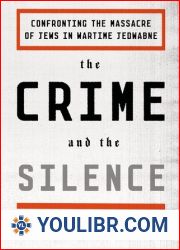
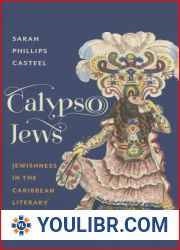
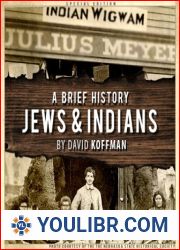
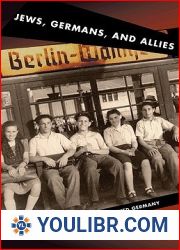



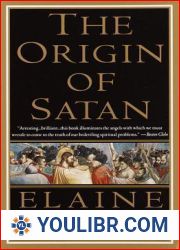
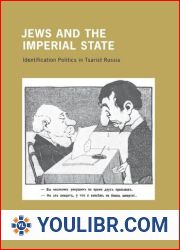
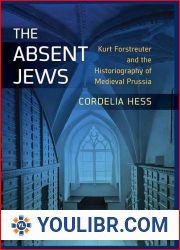
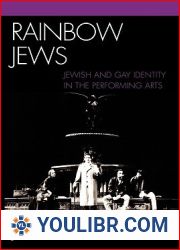


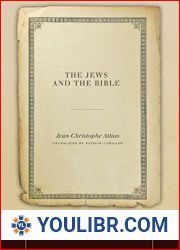
![Four Jews on Parnassus - A Conversation: Benjamin, Adorno, Scholem, Schonberg [with CD] Four Jews on Parnassus - A Conversation: Benjamin, Adorno, Scholem, Schonberg [with CD]](https://youlibr.com/img/7/724112_oc.jpg)

